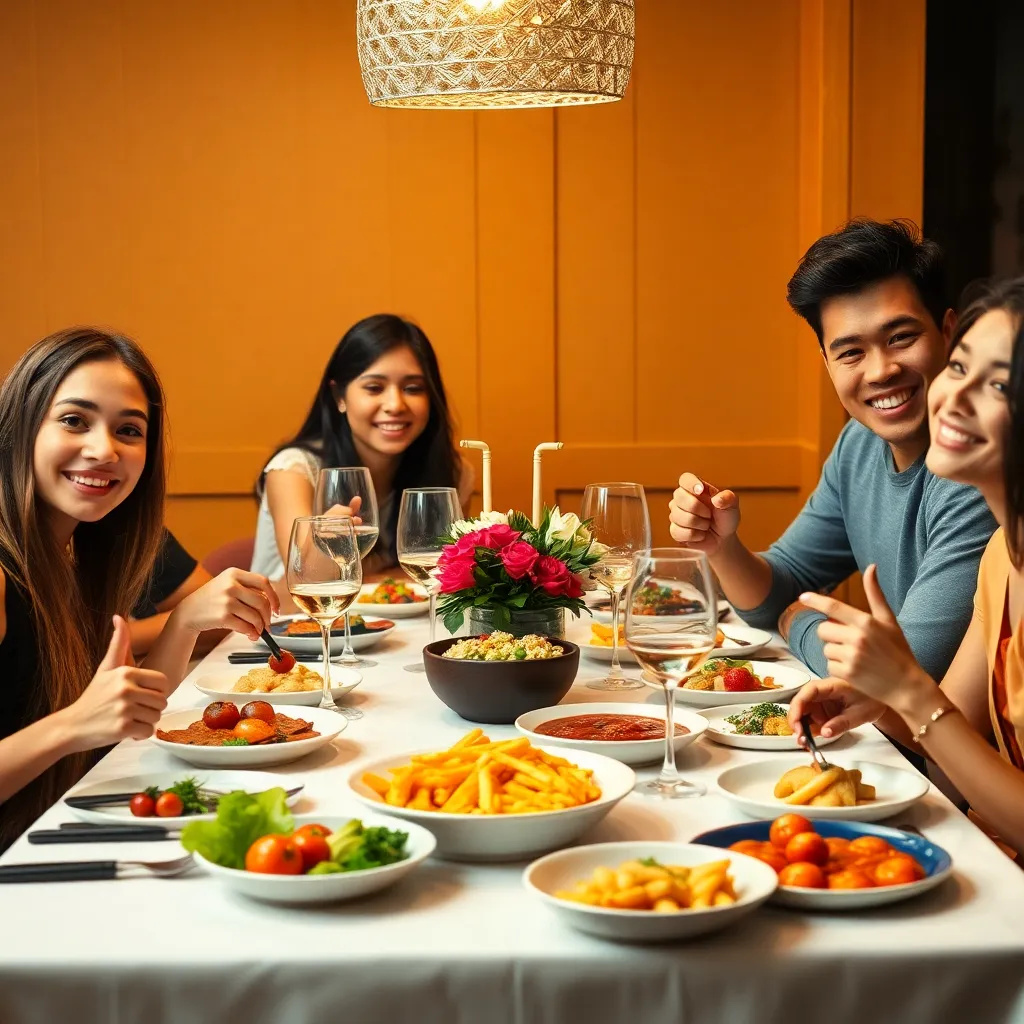Introduction: A Night to Remember (or Overanalyze)
Imagine a charming little dinner party. The lights are dimmed just enough to feel cozy. The table is beautifully set, mismatched placemats and all. Aromas of garlic, wine, and slight panic drift through the air. Five guests walk in, each embodying one of the Big Five personality traits: Openness, Conscientiousness, Extraversion, Agreeableness, and Neuroticism.
This isn’t just dinner—it’s psychology in action. These guests aren’t merely characters. They are living representations of how personality shapes behavior, especially in social settings. Think of this as your front-row seat to a night of interaction, introspection, and some inevitable awkwardness.
Openness: The Eccentric Visionary with a DIY Mindset
Openness arrives barefoot, wearing something that’s either avant-garde or just really comfortable. They bring fermented garlic kombucha and an experimental dip made from seaweed and hope. Before sitting, they’re already discussing lucid dreaming, the symbolism in Studio Ghibli films, and why they’re learning Mongolian throat singing.
People high in Openness are imaginative, intellectually curious, and drawn to novelty. They bring energy that shifts the tone of the room—often toward the profound or peculiar. Whether proposing a group poetry reading or encouraging everyone to eat blindfolded to enhance flavor, they challenge norms in delightful (and sometimes confusing) ways.
By the first course, they’ve sparked a debate about whether time is linear or just a collective illusion. Nobody’s sure if they’re joking, but everyone’s intrigued.
Conscientiousness: The Hyper-Prepared Host with a Backup Plan for the Backup Plan
Conscientiousness doesn’t just host—they orchestrate. There are timelines, checklists, and laminated menu cards. Candles are arranged in a Fibonacci sequence, and there’s a specific seat reserved for late arrivals (because punctuality is a virtue, but contingency is a plan).
They’ve prepped allergen-friendly options, cross-referenced each guest’s dietary history, and made sure the wine pairing complements every single dish. When the hummus runs low, a second, perfectly garnished bowl appears like magic.
Conscientious folks are structured, reliable, and careful. Their need for order isn’t about control—it’s about care. Every detail is thought through not just for aesthetics, but to ensure people feel considered. They may not be the loudest voice, but they’re the reason this party doesn’t descend into chaos.
Extraversion: The Walking Microphone and Human Spotlight
Extraversion enters with flair—arms open, grin wide, energy palpable. “Let’s get this party started!” They immediately propose a toast, followed by a selfie, followed by a spontaneous group game.
They naturally command attention, moving from guest to guest like a high-speed ping pong ball of conversation. They’re loud but inclusive, turning small talk into a shared performance. When things get quiet, Extraversion fills the silence, often without realizing others might not want it filled.
People high in Extraversion are socially dominant, expressive, and energized by interaction. At the dinner party, they’re the life force, initiating connections and raising the vibe. Sure, they might accidentally dominate the airspace, but their enthusiasm is contagious—and dinner wouldn’t be half as fun without them.
Agreeableness: The Gentle Healer and Emotional Thermostat
Agreeableness brings brownies—both gluten-free and regular—because they believe in options. Their smile is warm, their hugs reassuring, and their ability to detect tension is borderline psychic. They notice who’s feeling left out, who hasn’t spoken, and who might need some water—or an emotional check-in.
Throughout the evening, they subtly shift the conversation away from uncomfortable moments, refocus attention on others’ accomplishments, and find just the right compliment to soften a harsh remark.
Highly agreeable individuals are empathetic, cooperative, and emotionally intelligent. They don’t need to lead the night, but they do hold it together. When others clash, they offer levity. When someone spills wine, they rush to help—not to fix the mess, but to ease the embarrassment.
Neuroticism: The Guest Who Feels Everything (Deeply and Simultaneously)
Neuroticism texts the host three times before arriving: once to confirm the time, once to apologize for over-texting, and once more to say they’re overthinking everything. They show up with two outfits layered, unsure which was more appropriate, and sit cautiously at the edge of the group.
They worry the kombucha might cause an allergic reaction and question whether their laugh sounds fake. Every pause in conversation becomes a potential social faux pas in their mind.
Neurotic guests aren’t trying to be difficult—they just feel things intensely. Their mind is constantly racing, not because they don’t care, but because they care so much. That emotional depth, though exhausting, often comes with insight and a capacity for empathy that others overlook.
As the night progresses, Neuroticism relaxes—especially when Agreeableness offers a kind word or when Openness validates their existential angst.
The Group Dynamic: When Traits Collide (and Complement)
Now, throw them all together. Conscientiousness wants structure; Openness wants spontaneity. Extraversion interrupts; Agreeableness smooths it over. Neuroticism senses tension before anyone else. It’s a dance—sometimes clumsy, sometimes brilliant.
The interactions highlight something crucial: these traits don’t exist in isolation. They’re constantly influencing each other, for better or worse. When balanced, they form a dynamic, vibrant group. When out of sync, they clash—but even then, they offer opportunities to grow.
This dinner party becomes a mirror. Maybe you recognize yourself in Openness’ idealism, or Conscientiousness’ preparedness. Perhaps you’re a blend: Extraverted but Neurotic, Agreeable yet Open. Each mix reveals something about how you connect, cope, and contribute.
Dessert, Reflection, and Takeaways
As the final bites of dessert are savored—cheesecake by Conscientiousness, fruit salad by Agreeableness, and experimental chia pudding by Openness—the guests linger.
They reflect. Openness is already planning a sensory-deprivation reunion. Conscientiousness notes what went well and what could be optimized next time. Extraversion wants to make it a weekly thing. Agreeableness just hopes everyone had a good time. Neuroticism replays the night on loop, wondering if they talked too much about their cat.
The Big Five are more than theory. They’re lived experiences. They shape how we eat, talk, joke, and bond. And when we understand them—not just in ourselves, but in others—we get better at this messy, beautiful thing called being human.

